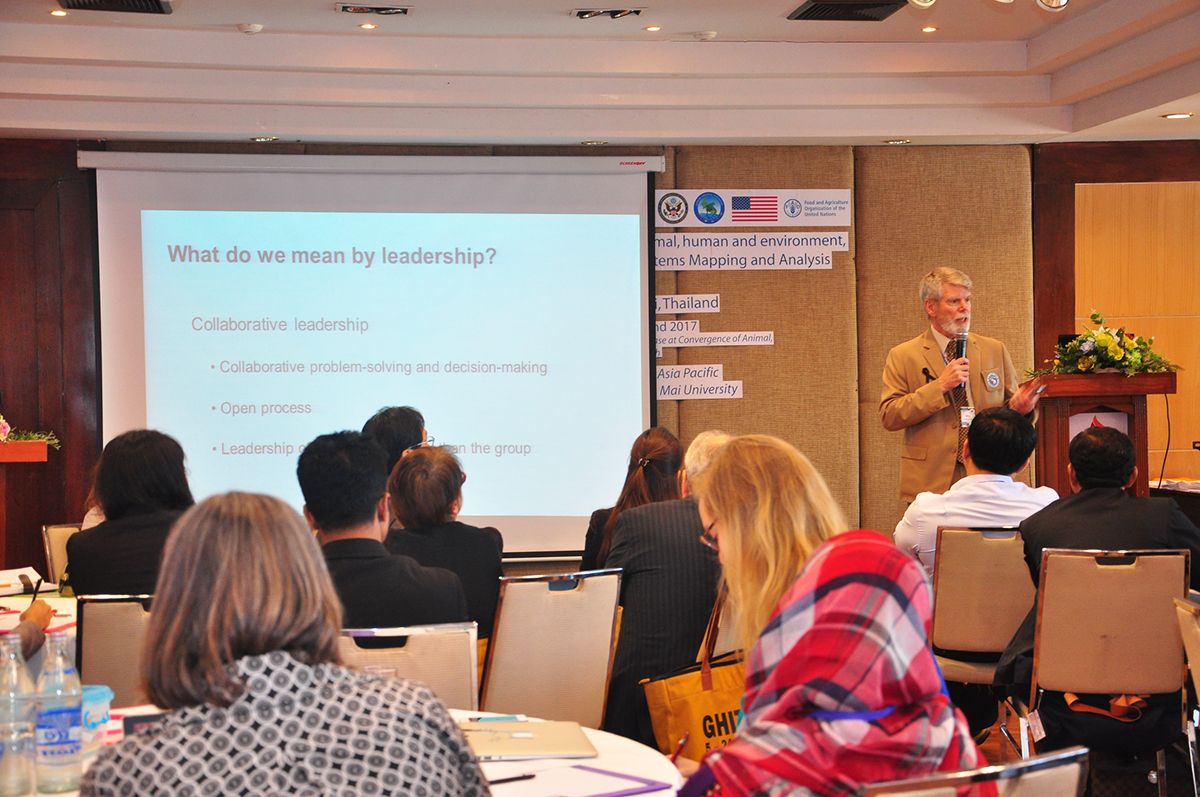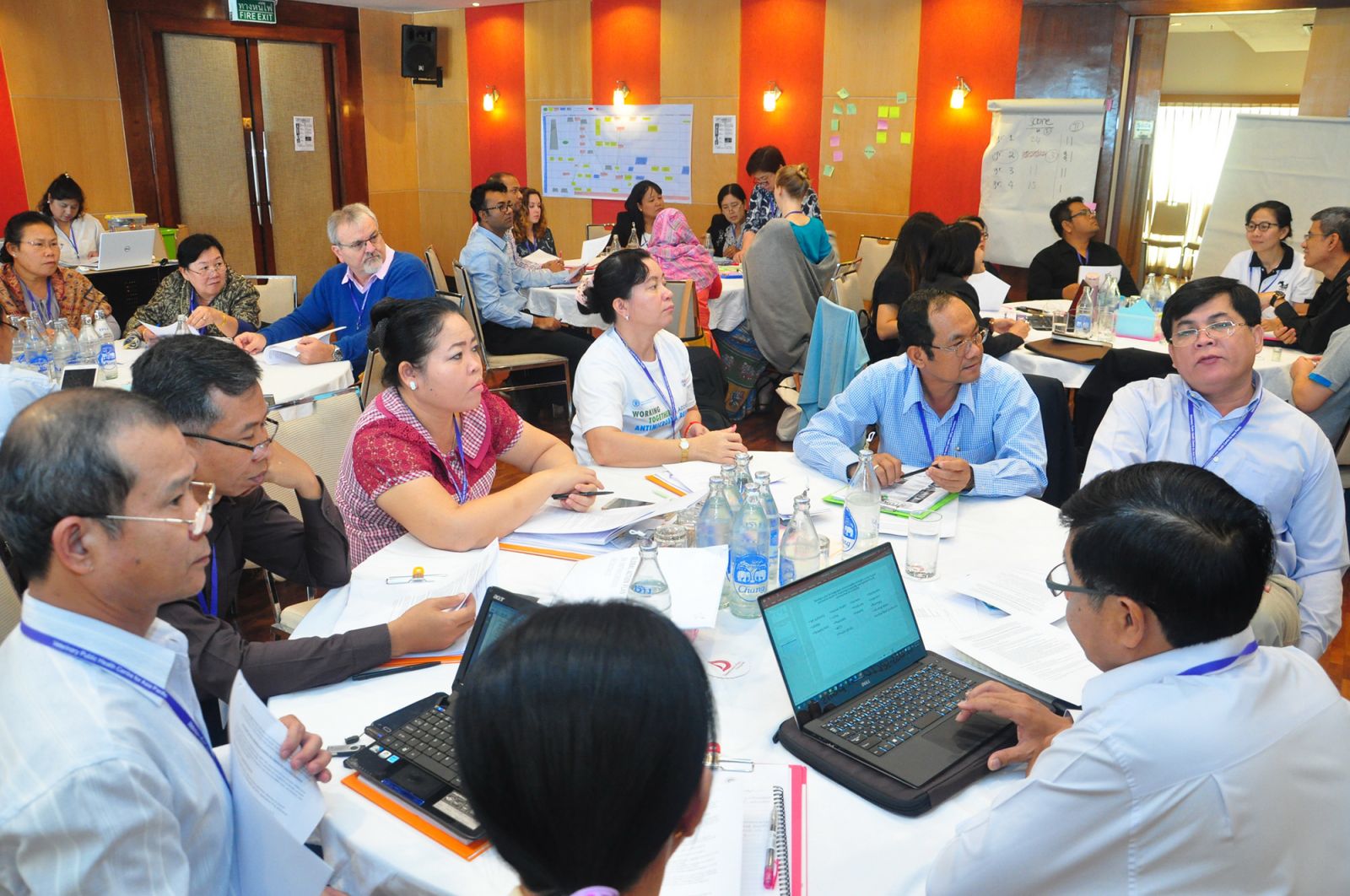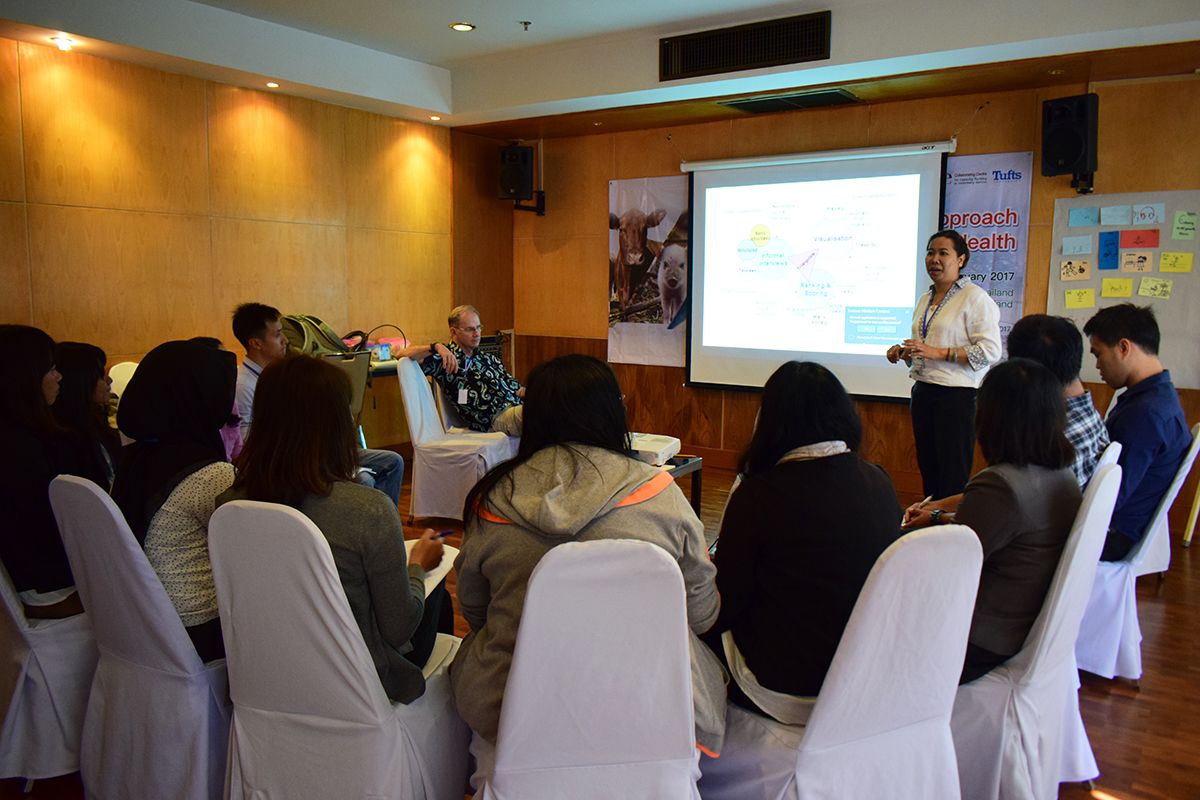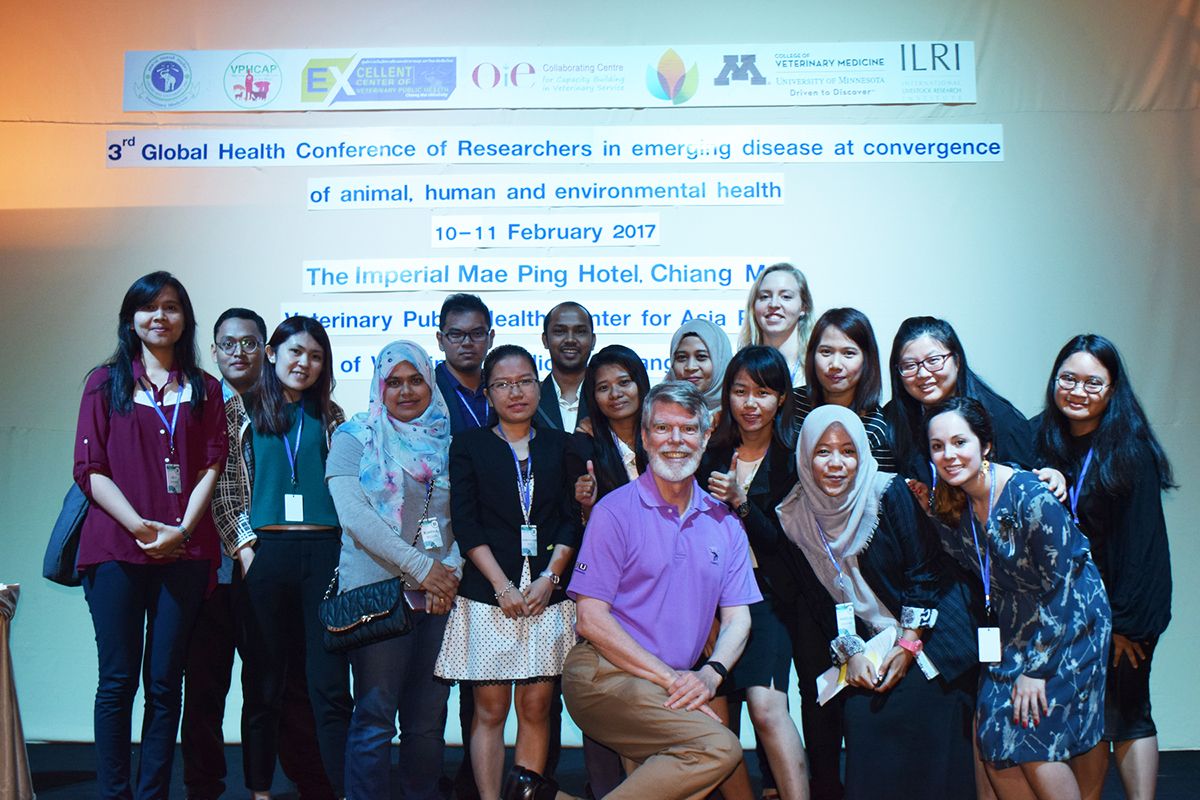
Global Health Institute – Thailand 2017: Knowledge and Skills for Addressing Emerging Infectious Diseases at the Convergence of Animal, Human, and Environmental Health
The Global Health Institute – Thailand 2017 (GHI 2017) represented an international collaboration between two World Organisation for Animal Health (OIE) Collaborating Centres for Veterinary Services Capacity Building: the Center for Animal Health and Food Safety (CAHFS), University of Minnesota, and the Veterinary Public Health Centre for Asia Pacific (VPHCAP), Chiang Mai University, which also serves as the Excellence Centre for Veterinary Public Health at CMU.
The GHI provided an important platform for participants from universities, government agencies, and industry sectors to engage with faculty from the University of Minnesota and academic institutions in Thailand. Together, they examined the impact of globalization on health and identified strategies to support a healthy and productive global workforce. The 5th GHI combined intensive study with a two-day research conference, reinforcing the goal of One Health Leadership in addressing emerging diseases at the animal–human–environment interface.


Program Structure
-
Week 1 (5–9 February)
-
Course 1: Global Health Leadership at the Convergence of Animal, Human, and Environmental Health for Outbreak Response Using the One Health Systems Mapping and Analysis (OH-SMART) Tool
-
Course 2: Introduction to Participatory Epidemiology Approach to One Health – EcoHealth
-
-
Research Conference (10–11 February)
Themes included:-
Emerging and re-emerging diseases
-
Antimicrobial resistance
-
Application of risk analysis
-
Epidemiological tools and applications
-
Food safety and hygiene
-
-
Weeks 2–3 (13–17 and 20–24 February)
Additional intensive courses:-
Participatory Epidemiology Approach to One Health – EcoHealth 2 (Community-based)
-
Social Network Analysis
-
Farm to Table
-
Food Safety Risk Analysis
-
Participation
-
109 participants attended the short training courses.
-
66 participants attended the research conference.

The program offered six course options in total, enabling participants to enhance their One Health leadership skills, share knowledge, and strengthen professional networks across diverse sectors.